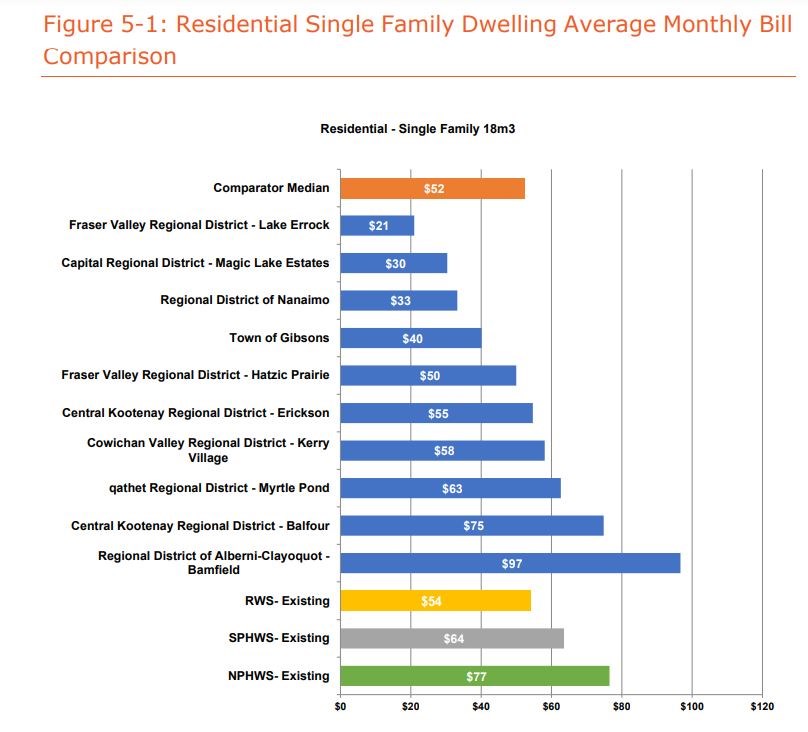A report recommending the Sunshine Coast Regional District (SCRD) budget in 2024 to look at volumetric water billing is on the Sept. 28 committee meeting agenda. If the board supports going forward with that planning, the North and South Pender systems, where meters are already in place, are the recommended first candidates for the change.
SCRD past practice has been to set system water rates in December for the coming year. Any change to volumetric billing isn’t anticipated until 2025. The 2024 budget process is to start with public consultation during November and Round 1 meetings set for Dec. 4 to 6.
Why change the water rate structure?
In December 2022, the regional district hired InterGroup Consultants, based in Winnipeg, to study and recommend improvements to its water rate structure for its regional and Pender water systems. The assignment was to identify systems that would ensure rates can be set to cover the short and long-term financial needs of the services, have a user-pay approach, and promote water conservation. They were also tasked with recommending a rate mechanism that creates stability, is updateable and simple to understand.
The consultants favoured the setting of a uniform rate per cubic metre charge for water used along with fixed charges based on water meter size or customer class. Seasonal charges (different rates in wet and dry periods of the year) for metered water rates were identified as another viable option. Continuing with the current flat rate system used for most regional customers could not achieve the assigned goals, according to the consultant and staff reports.
InterGroup also recommended that if the region moves to volumetric billing, a water demand study be conducted once all customers in the regional system are on meters. Gathering that data, it wrote will help “understand customer peaking requirements and customer consumption habits for each of the water service area customer classes." With full metering in Sechelt slated for completion in mid-2025, that step, if endorsed, would stretch the process out into 2026.
It also recommended a move to more frequent billing (currently done on an annual or quarterly basis) and a revision of customer classes from the current structure to one based on meter sizes and water usage.
“Given the need for increased fairness, efficiency, and conservation of SCRD drinking water, the shift to volumetric billing is an important intervention to build resilience and address the complex challenges of water supply management,” the staff report concludes.
A recent SCRD survey showed that more than 300 out of 400 responses from the public were in favour of changing the water rate structure to one where “those who use more water to pay more” and one with an “incentive to conserve water," the staff report cited. More frequent billing was supported by 250 of the 400 respondents.
While regional and Pender system customers are experiencing restrictions on water use, the flow of documents for area directors to consider in making decisions for those services continues at a brisk clip. The reports on adjusting water rate structures contained 138 pages with analysis including a comparison with 10 other B.C. local government water providers, including the Town of Gibsons.



